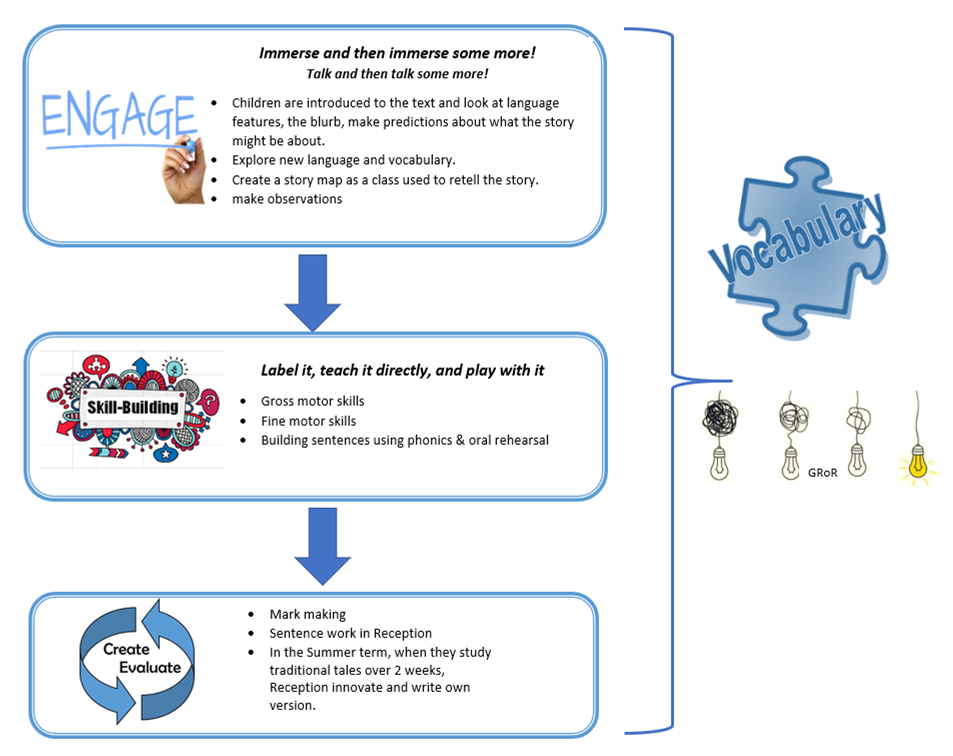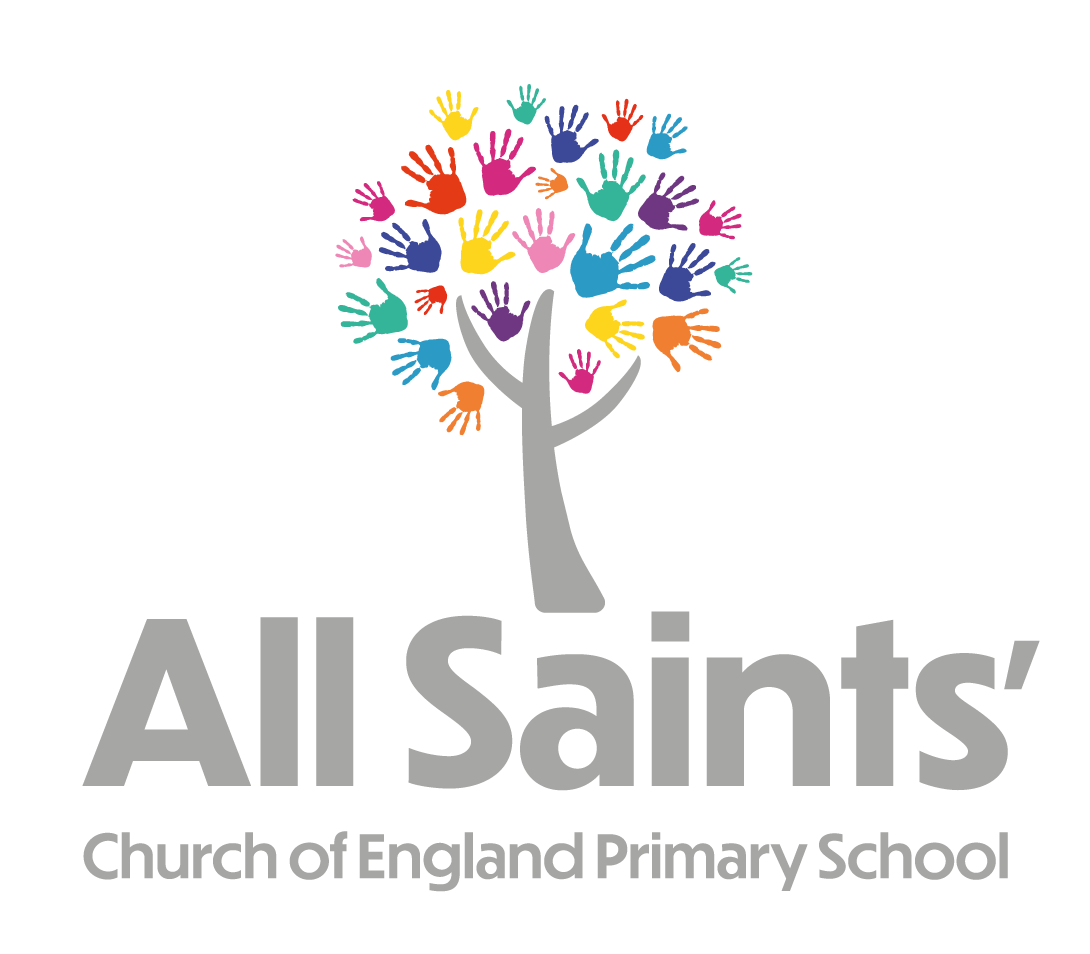- Home
- Curriculum
- Early Years Foundation Stage
- What does Early Years look like at All Saints’?
- Specific Area: Literacy
Specific Area: Literacy
It is crucial for children to develop a life-long love of reading. Reading consists of two dimensions: language comprehension and word reading. Language comprehension is necessary for both reading and writing and starts from birth. It only develops when adults talk with children about the world around them and the books (stories and non-fiction) they read with them, and enjoy rhymes, poems and songs together. Skilled word reading, taught later, involves both the speedy working out of the pronunciation of unfamiliar printed words (decoding) and the speedy recognition of familiar printed words. Writing involves transcription (spelling and handwriting) and composition (articulating ideas and structuring them in speech, before writing).
The Early Years curriculum is planned around key events in the year, children’s interests and focus texts are chosen that make cross curricular links and promote a talk for writing approach to learning. See below.
Nursery rhymes or relevant songs for each topic are also incorporated into daily lessons.
All Saints Approach to Literacy in Reception

Autumn 1 Key Texts 
- Topsy and Tim- Transition week
- Oliver's Vegetables- discuss the features of a recipe
- Oliver's Fruit Salad- Shopping List
- Funny Bones- Label parts of the body
- Elmer- Label colours
- Me
Autumn 2 Key Texts 
- Rama and Sita- Acting out the story
- Kipper's birthday- Writing an invitation
- Stickman- Rhyming words
- The Nativity- Speaking and Listening for the performance
- Twas the Night before Christmas- Poetry
Spring 1 Key Texts 
- Stomp, Dinosaur, Stomp!- Rhyming words
- Pirates Love Underpants- Treasure maps
- The Singing Mermaid
- Whatever Next- Independant story maps and labelling
- Handa's Surprise- Picture Book
Spring 2 Key Texts 
- Jasper's Beanstalk- Captions and Labels
- What the Ladybird Heard?- Maps of the farmyard
- Growing Frogs- Label life cycles
- The Farm
- The Tiny Seed- Captions and Labels
Summer Key Texts 
- Jack and the Beanstalk- Story writing
- The Gingernread Man- Story writing
- The Three Little Pigs- Story writing
- Little Red Riding Hood- Story writing
- The Three Billy Goats Gruff- Story writing
- The Mega Magic Teacher Swap- Story writing
Read, Write Inc
At All Saints’, we teach phonics using a scheme called 'Read Write Inc.' (RWI). RWI is a literacy programme, designed and developed by Ruth Miskin, one of the country’s leading authorities on teaching children to read. The programme aims to help all children learn to read fluently and at speed, so they can focus on developing their skills in comprehension, vocabulary and spelling. The programme is designed for children aged 4-7. However at All Saints', we begin to expose children in Nursery to skills that will help them access the RWI programme in Reception. We continue teaching RWI to children beyond the age of 7, as we use a stage, not age, approach.
All classes enjoy five lessons of RWI per week. Every half term, each child in Reception and Key Stage 1 is assessed on their letter recognition and reading. After the assessment, any gaps in phonics knowledge, comprehension, or reading fluency will be used to assign each child to a phonics group, for regular sessions with a trained member of staff using RWI methods. These groups are organised according to the children’s specific needs, and the specific sounds, letters and comprehension skills needed are taught in a consistent and engaging way. These regular assessments ensure that children are placed in the most appropriate group for their current phonics skills. Although we do assess all children every 6 weeks, RWI assessment is ongoing, meaning that we assess and regroup as often as is needed.
For more information about RWI, please click here.
